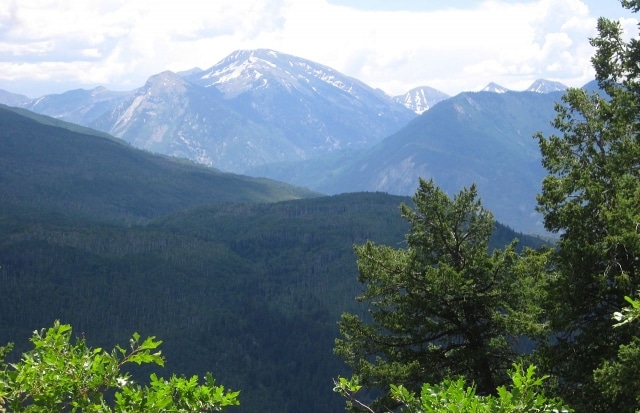A U.S. District Court judge ruled on June 27 that the Bureau of Land Management (BLM) and Forest Service both wrongly approved expansion of the West Elk coal mine in Somerset, Colo., because they failed to take into account the economic impacts greenhouse gas emissions from the mining would have.
The federal agencies said it was impossible to quantify such impacts, but the court pointed out a tool is available to quantify the effects of emissions and the agencies chose to ignore it. The tool, the “social cost of carbon protocol,” puts a price on the damanges from drought, flood, storm, fire and disease caused by global warming.
“It is arbitrary to offer detailed projections of a project’s upside while omitting a feasible projection of the project’s costs,” U.S. District Judge R. Brooke Jackson ruled.
Arch Coal, Inc. planned to bulldoze vegetation to build about six miles of roads and drill up to 48 exploratory holes in the scenic backcountry of western Colorado’s North Fork Valley to vent methane and determine whether a coal seam actually lies beneath the area.
The federal agencies’ final report on the West Elk Mine expansion listed the economic benefits of modifying public lands leases to allow the project, but failed to quantify the social or economic costs of carbon emissions from the project.
The ruling could be game-changing because if the judge’s reasoning holds up in other challenges to federal agency decisions, it could change the calculus on dozens of other major projects, such as the proposed Keystone XL tar sands pipeline.
Agencies’ Decisions Arbitrary and Capricious
By law, the court can only set aside decisions by agencies if they find those decisions “arbitrary, capricious, an abuse of discretion or otherwise not in accordance with law.” It is up to the plaintiffs to prove an agency’s decisions are arbitrary or capricious.
Plaintiffs Earthjustice, High Country Conservation Advocates and the Sierra Club alleged that BLM and the Forest Service failed to disclose the social, environmental and economic impacts that greenhouse gas emissions from the project would have. They also alleged the agencies failed to disclose enough detail about the location and extent of the proposed mining operation to allow proper analysis of its impacts.
Arch Coal argued that the environmental groups lacked standing to bring the case because they couldn’t demonstrate that an increase in greenhouse gas emissions would negatively impact the recreational values of the land they sought to protect.
The court found Arch Coal’s “lack of standing” argument unconvincing.
The judge agreed with the environmental groups’ claims and stopped Arch Coal from proceeding with any exploratory activities in the area that involve bulldozing, construction or other activity on or beneath the ground. The court also revoked the BLM and Forest Service’s approval of Arch Coal’s plan to drill exploratory holes in the area.
Subscribe to our newsletter
Stay up to date with DeSmog news and alerts







